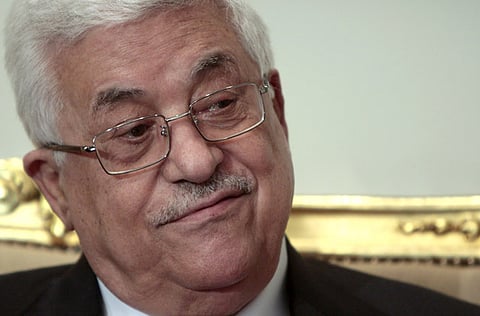The hubris of Hamas
The group is the legitimate representative of the Palestinians

As Palestinian President Mahmoud Abbas resumes direct negotiations with Israel and the Muslim Brotherhood is deposed in Egypt, Hamas finds itself more isolated than ever. Hamas was never against Abbas assuming the peace negotiator position because Hamas does not believe that negotiations will lead to peace with Israel, so by all means, let Abbas and the Israelis meet with US Secretary of State John Kerry in Washington D.C. to mull over all the same points of disappearing 1967 borders, increasing colonists, the status of occupied Jerusalem, refugees, prisoners …
Peace with Israel will have to include all Palestinians, not just the western-leaning Ramallah branch, and should include the League of Arab States. This is the only card Hamas can really play both nationally and regionally: They were democratically elected, thus legitimate representatives of the Palestinians, and therefore need to be involved in the political process.
Hamas was also correct in moving its external headquarters from Damascus to Doha. Not only did this distance Hamas from the repressive policies of Bashar Al Assad’s military dictatorship, it also sent a message of solidarity to the Syrian people who are resisting the oppression of an unsustainable system, just as the Palestinian continue to resist the illegal Israeli occupation of their land.
By moving to Doha, Khalid Mesha’al brought Hamas closer to the Qatar brand of Sunni Islam, marked by an overt foreign policy of investing in the reconstruction of areas devastated by Israel. Signs in Lebanon of ‘Thank you Qatar’ were placed along the sea highway to thank Qatar for helping with the clean-up after the 2006 Israeli bombardment of Lebanon.
In Gaza, long promotional posters with the Qatari flag lined the roads during the first official visit by a head of state to the Strip last fall when the Emir of Qatar Shaikh Hamad Bin Khalifa Al Thani pledged nearly half a billion dollars for reconstruction projects. The revamping of the ports and fishing facilities as well as health care institutes were prioritised.
Bonds of Brotherhood
As Hamas gained representative legitimacy by winning the Palestinian legislative elections in 2006 and moved away from Syrian tutelage in 2011, the Islamist Movement gained confidence and further support from Sunni Qatar. With such support, Hamas moved further away from the Shiite ‘resistance’ trio of Syria-Iran-Hezbollah and closer to its Sunni brethren in Egypt and North Africa.
It was no coincidence that Hamas Prime Minister Esmail Haniya was the first political leader to visit Tunis and congratulate the Al Nahda party when it won the elections there; nor that Hamas ministers shuttled back and forth from Gaza to Cairo to confer with their colleagues from the Muslim Brotherhood — they are from the same political family with similar social agendas.
The alliance and solidarity amongst Sunni Islamist groups is therefore natural. No one should be surprised that the Egyptian military accuses the deposed president Mohammad Mursi of “colluding with Hamas”. No collusion is needed; the Egyptian Brotherhood and Hamas are allies; historically, Hamas emerged as the Palestinian branch of the Brotherhood.
What’s ironic is that it was the EU and the US that pressured the Egyptian junta either to release Mursi or to accuse him of something; just as the Palestinians have been pleading with the international community to pressure Israel to do regarding their thousands of prisoners held for no apparent reason for months and years — give them a trial!
Just as Mursi was deposed in early July by the Egyptian military due to the incompetence of his leadership, so the political assassinations in Tunisia depict the frustration of people with the Islamists there. In both countries, the Islamist groups have been unable to bring economic growth while trying surreptitiously to implement social changes that the broader societies do not want.
Due to the extreme, indeed unparalleled, seclusion of Gaza in a massive prison-like strip of land, it is impossible to say how the Palestinians would react to Hamas’ rule over all of Palestine; however, undoubtedly Hamas would face strong opposition from more moderate Muslims and secularists had they tried to amend the constitution unilaterally, as Mursi did in Egypt.
That was Mursi’s big mistake. The military was begging for retribution after Mubarak fell, and jumped on the opportunity when Tahrir Square started to inflame again. The Egyptian military has gone on to destroy as many of the trafficking tunnels between the Sinai and Gaza as possible and has closed the one lifeline to the outside world for Gazans — the Rafah crossing point.
The Egyptian military went so far as to refuse passage to thousands of Palestinians who were returning from Umrah from Makkah at the end of Ramadan. Pity the Palestinians, waiting for days in airports. And the big winner as usual is Israel — the military means more national security and making Gaza more miserable means keeping Hamas humble and humiliated.
Stuart Reigeluth is founding editor of Revolve Magazine.



